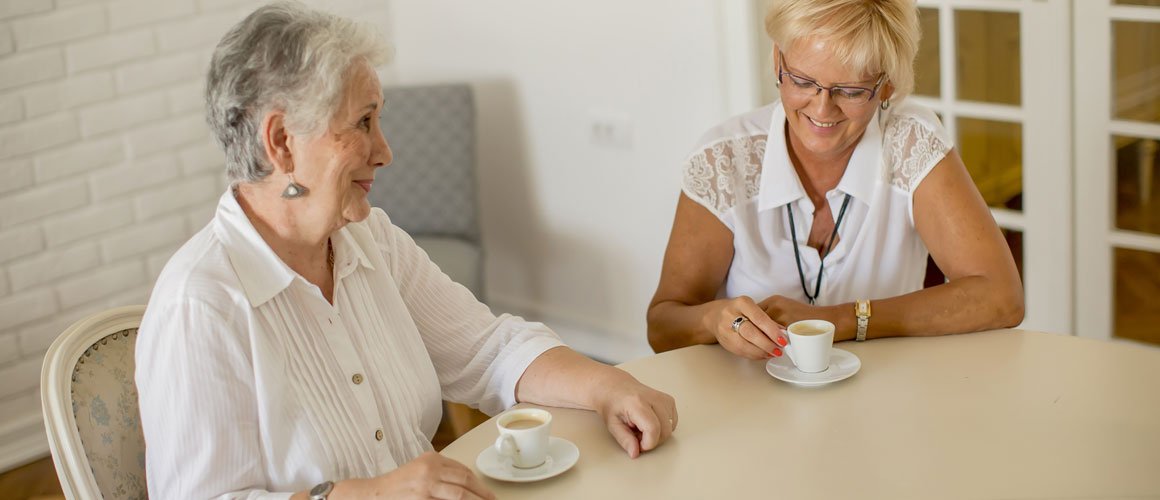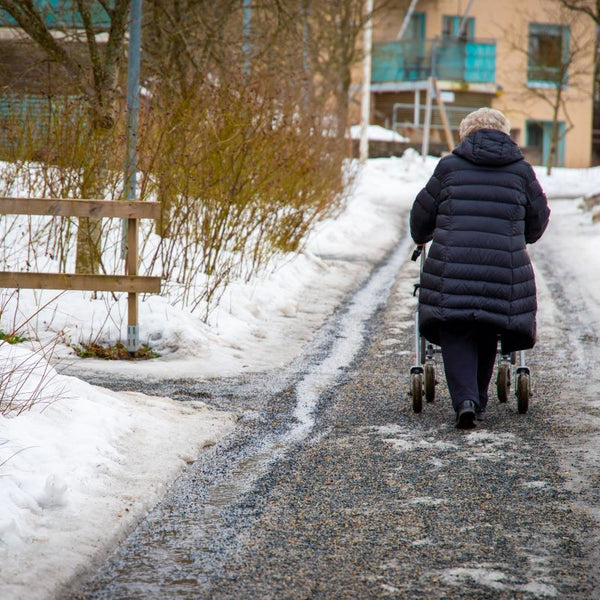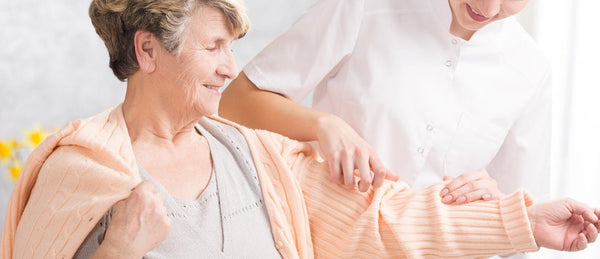More people are living independently at home for longer. People enjoy the comfort of being in their own homes and having the freedom to socialise and take part in the hobbies they love. However, ensuring that your elderly loved ones remain safe at home is key to maintaining their independence for longer.
In this article, we share seven ways you can provide help for the elderly living at home in the UK.
- Reduce the risk of falls
- Check appliances and keep them well-maintained
- Consider home monitoring devices
- Use a personal alarm for emergencies
- Organise a visiting or care rota
- Create an emergency folder
- Make modifications to the home
1. Reduce the risk of falls
Those over 65 are at the most risk of falling, according to guidance from Public Health England. A fall can become a significant barrier to independent living, as some older people may never fully recover from a fall.
The effects of a fall can include:
- Distress
- Pain
- Long-term injuries, such as fractures and broken bones
- Loss of confidence
- Hypothermia is if you fall somewhere cold or at night and can't get back up.
The good news is that many falls are preventable, and with some planning and research, the proper measures can be put in place to reduce the risks of falling at home.
Taking Care has many online fall prevention resources, including our free Falls Risk Assessment Tool.

2. Check appliances and keep them well-maintained
Electrical and gas appliances make life easier and more comfortable; however, it's important to remember that these can also pose a safety hazard if they are not regularly maintained.
Be sure to check electrical and gas appliances, as well as fireplaces and flues, on a regular basis.
Here are some suggestions for what to look out for:
Electrical appliances
- Always read and follow the manufacturer's guidelines for safely operating appliances.
- Think about unplugging appliances that aren't being used to reduce risk and save money.
- Make sure electrical cords aren't split or damaged.
- Plug appliances directly into wall sockets instead of power strips or extension cables whenever possible.
- Prevent fire hazards by keeping appliances such as the tumble dryer free from fluff and debris.
- Regularly empty the filter on the washing machine.
- If a fuse keeps blowing or tripping the circuit, unplug the item and have a professional look at it. Something may be causing a fire or shock hazard.
Gas appliances
- Ensure you have working carbon monoxide and fire alarms on each floor of your home. Consider home monitoring systems that will automatically alert a 24/7 monitoring centre in the event of temperature extremes. Read our fire safety tips online.
- Get an annual gas safety check. A Gas Safe registered engineer should check all gas appliances in your property once a year. They'll also visually inspect your gas pipework and check for gas leaks.
- If your appliance isn't working as it should be, there are sure signs to look out for, like floppy yellow flames, extra condensation and black marks around the appliance – get it checked out as soon as possible.
- Know the signs of carbon monoxide poisoning - you'll want to look for headaches, dizziness, nausea, and breathlessness. More severe symptoms are collapse and loss of consciousness.
- Ensure adequate ventilation - This is essential for gas appliances to burn correctly. You'll want to ensure no air vents or chimneys are blocked.
If you smell gas or suspect carbon monoxide poisoning, you must contact the National Gas Emergency Service immediately.
3. Consider home monitoring devices
As technology advances, more people are using home monitoring systems as a care solution for their elderly parents.
There are now smart home monitoring devices that can let you know if your elderly relatives are safe and well in their own homes by detecting changes in their routine and sending out alerts if help may be needed.
Taking Care has several home monitoring solutions connected to our 24/7 Emergency Resolution team, meaning someone will always respond any time of the night or day, even when you may be busy at work or asleep at night.
If you're worried about an older relative staying safe in their home but don't want to hire a carer or are unable to be there with them as much as you'd like, home monitoring systems are an excellent and discreet way to ensure your loved one has the support they need to stay independent.

4. Use a personal alarm for emergencies
Alongside or as an alternative to home monitoring, a personal alarm service provides an extra level of assurance for older people and their families.
Personal alarms are simple devices worn on the wrist or around the neck, and at the press of an emergency button, will connect the wearer to an Emergency Resolution team that is available 24/7. The Emergency Resolution team can help the wearer in all situations, from arranging for a key holder to enter the property and help to alerting the emergency services if required.
Personal alarms can help older people live more independently by bringing real peace of mind to loved ones, knowing that help is available whenever needed.
If your older relative is still quite active, it is possible to get fully monitored alarms that work out-and-about, giving your loved one freedom and assurance that help is always on hand.
5. Organise a visiting or care rota
If the responsibility of caring for your older relative is shared between you and others, try to draw up a rota to keep things fair and even. A rota can also be created so that the person receives regular visitors. This is a great way to combat loneliness, as well as have the reassurance that someone will check in on them to ensure things are OK.
Make sure that however you draw up a rota, it feels fair to everyone involved. Once you have a rota, try to stick with it and communicate regularly to ensure everyone is satisfied with the plan. Many older people enjoy regularity, so try to keep the schedule the same where possible.
6. Create an emergency folder
Nobody likes to think of the worst happening to a loved one. But health emergencies, accidents and other unexpected events sometimes happen and creating an emergency folder in case of an unexpected event is vital and can save a lot of time.
The folder should contain important information such as your older loved one's medical information, emergency contacts and where to find essential medications. While you know which doctor they see or which medications they are on, others likely won't.
Keep copies of any necessary legal documents in the folder, making them easy to find if needed in an emergency.
Document daily routines, such as if your loved one needs to stick to a specific diet or follow a particular daily routine – especially useful if they are living with dementia. Make it as easy as possible for anyone who comes to care for your older relative to provide your loved one with the support they need if you cannot do so.

7. Make modifications to the home
The thought of your loved one staying in their own home can be intimidating as it may not be suitable for their mobility or care needs as it is. However, there are many temporary and permanent options that can help your older relative stay at home for longer.
Here are some suggestions for home modifications and independent living aids that can make staying at home more accessible and safer:
- Install ramps outside - Stairs or steps outside the property may prove challenging. Replacing these with ramps can help those who are unsteady on their feet or have balance issues. Ramps also allow your loved one to use a wheelchair or mobility scooter if they have one or need one in the future.
- Use grip tape on stairs - Another option to increase stair safety around the home is to add traction or grip tape to stairs and steps.
- Replace the bath with a walk-in shower or walk-in-tub – consider purchasing a shower seat or bench if changing the bathroom isn't an option.
- Lower cabinet and countertop heights allow easier access from a seated position. Reclining armchairs, or rise recliners, can make it easier to get in and out of a chair.
Getting help to live independently
If you want some advice on the best personal alarm system for your circumstances, our team would love to help. Call on 0800 085 7371 or browse our pendant alarms.




